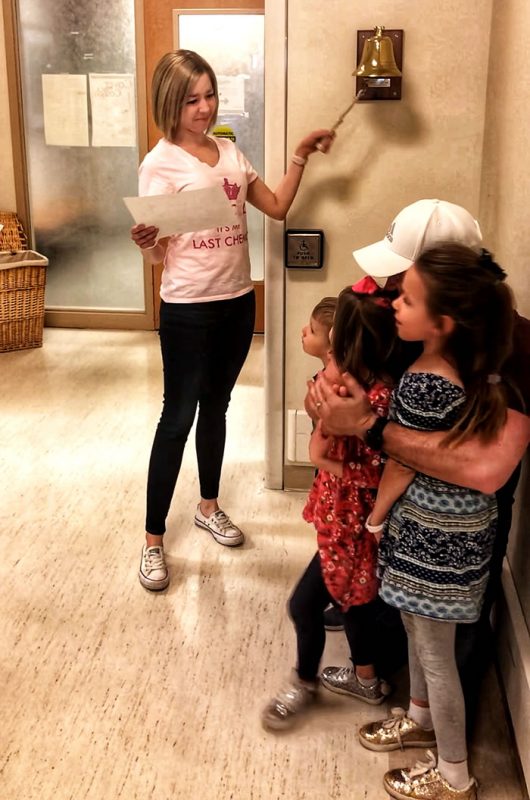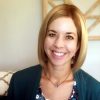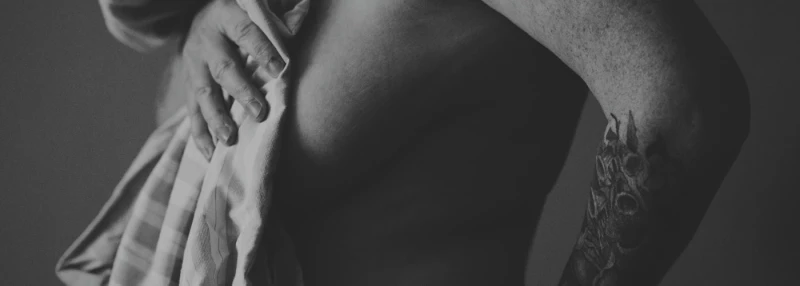Cancer touches and affects every aspect of life. While most people are familiar with the physical parts of the disease, too little attention gets focused on the emotional, spiritual, and mental aspects of it. But it’s impossible to really understand or empathize with a cancer patient without considering all of these aspects.
What It's Like to Be Told You Have Cancer
So what’s it like to receive this diagnosis and be told “you have cancer”? I can only state it in my own way, but imagine you are in an empty, windowless room, and while you are sitting there alone, every light is turned off.
So what’s it like to receive this diagnosis and be told “you have cancer”? I can only state it in my own way, but imagine you are in an empty, windowless room, and while you are sitting there alone, every light is turned off. You are plunged into complete darkness. It is lonely, it is disorienting, it is bleak, it is scary. Which way is up? Which way is down? What is hiding in the corners that you don’t know about and what comes next?
At more than one point since diagnosis, I have felt this way…anxious, upset and fearful. This is not uncommon, and it is okay to feel many different emotions throughout a cancer battle. Allow yourself to have these feelings, but also consider how you can work through them and learn new patterns of thought.
One decision that I made early on was to meet with an oncology-trained psychologist, and she showed me a new perspective that gave me hope. Hope is a powerful weapon in this fight. For a long time after my initial diagnosis, I was afraid to feel hopeful. I didn’t want to be disappointed or “let down” if I hoped.
A Spark of Light Comes from Hope
My psychologist showed me two choices. First, she asked me, “What do you have to lose if you have hope?” I answered that I would be set up for disappointment, but she explained more to me. If you have hope, you are able to enjoy the moments that you have, find more peace in your days, and are more likely to appreciate life. And if the thing you are anxious about never comes to be, you enjoyed each day. And even if the thing you are worried about does happen, you will be disappointed, of course, but you chose to enjoy each day.
Contact Jean Rowe
In contrast, she asked, “How does life look without hope?” She explained again. If you don’t have hope, you live upset, have days filled with worry, and you don’t appreciate the days you have but begin dreading something that has not even happened. And if the thing you are anxious about never happens, then you wasted precious moments in a state of anxiety. And if that thing does happen, you will be disappointed, of course, but each day leading up to that will have been disappointing as well.
I chose the former of the two options, and with this newfound hope that I had, a little glimmer began, as small as the flame on a single match. But with passing days, the flame grew, and I could see more in the dark room around me. I could glimpse my friends and family that showed up to help. I caught sight of things in life that I used to love and could love again. With more time, that flame grew into a fire that lit the whole room so that the darkness was gone. Once again, I could tell up from down, and I didn’t feel alone.
A Spotlight on Your Mental Health
But growing hope and dealing with fear, anxiety, and depression is not an easy task. Along with dealing with the physical side effects of cancer, it can be easy to let our mental health go by the wayside. So what else can you do to gain a new perspective and take care of your mind and mental wellbeing?
- Talk with someone. This person can be a close friend or trusted family member, or it can be a psychologist, therapist or other trained health care professional. If you need direction, your oncologist can likely point you to helpful, local resources. Your healthcare team is only a call away. Remember, though, you can express your fears, emotions and anxieties on your own terms.
- Join a support group. This can be online or in person. YSC offers both of these options and the ability to connect with other women that have had your same experiences. Not feeling alone is a powerful thing.
- Get outside. This allows a breath of fresh air, a few moments in the sun, or a trip to a park.
- Exercise. Do this in whatever form you are comfortable with and your healthcare provider has given approval to do. Consider a walk with a friend or listen to a playlist with your favorite songs. Other options could be a round of stretching or yoga.
- Treat yourself to things that recharge you: a good book, long nap, relaxing bath, or favorite movie. Enjoy a sweet treat, night out with friends, or a warm cup of coffee or tea.
- Take up a new hobby or follow after a new passion, such as journaling, painting, pilates, photography, traveling, hiking…anything that makes you feel encouraged.
- Practice mindfulness, meditation or the faith that you follow. This may be learning to breathe deeply, focusing on the moments at hand, praying, or taking life one day at a time rather than focusing on next week, next month or next year.
- Keep your schedule, as much as possible. Many people find that carrying on with the “normal” activities of life from pre-cancer can make post-cancer life feel more stable and routine.
As you navigate this world post “you have cancer,” remember that you are never alone. There is someone that can help you find that hope that may seem dim and that can help you light up the corners that are dark. Gather all those little sparks that bring you hope and hold onto them until the world around you is brighter again.
 Marisa is a physician, mom of three, and breast cancer fighter. She was diagnosed with early stage, triple positive breast cancer at the age of 35, which has given her a new passion for research and advocacy. She enjoys using her medical and research knowledge along with her personal experiences with cancer to make a positive impact in the oncology world.
Marisa is a physician, mom of three, and breast cancer fighter. She was diagnosed with early stage, triple positive breast cancer at the age of 35, which has given her a new passion for research and advocacy. She enjoys using her medical and research knowledge along with her personal experiences with cancer to make a positive impact in the oncology world.




